San Francisco podcaster and sister-city advocate earned his news chops freelancing for BBC in South America
Jim Herlihy spent years managing investments for major banks in South America. While stationed in hotspots like Chile and Ecuador, he used his insider knowledge to write about the region as a freelance reporter for the BBC and other news services.
Years later and pushed into retirement, the 75-year-old New York native leveraged his time in the worlds of finance and journalism to build a podcast found today on nearly 20 platforms.
“The San Francisco Experience” is a curated blend of news, interviews, and economic analysis designed to fit into a morning commute. Unlike many of the podcasters and social media stars who have proliferated in recent years, Herlihy says he makes a point of being fact- not opinion-based. and avoids stirring controversy for the sake of ratings: “I’m not Joe Rogan,” he says, referring to the flame-throwing podcaster and martial arts commentator.”
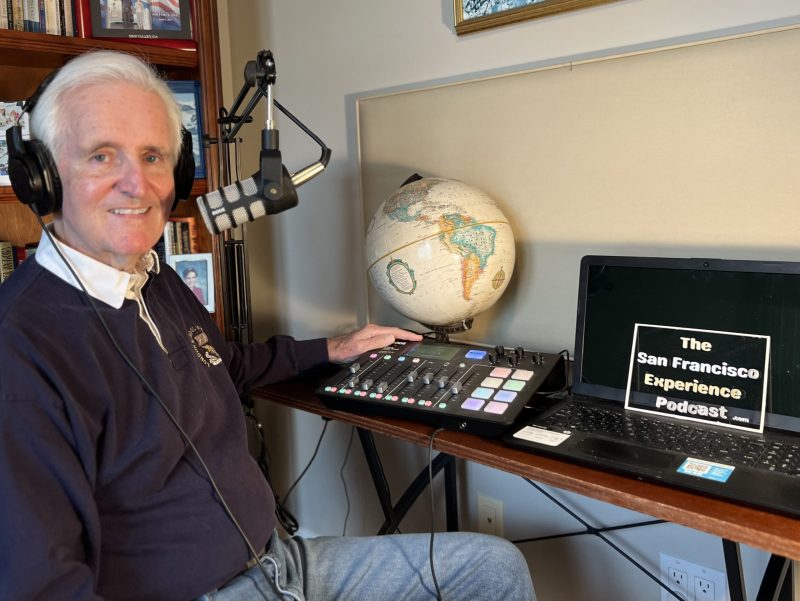
Herlihy, who works by himself, generally produces at least two podcasts a week, and his choice of topics and guests reflects his wide-ranging interests. He covered November’s APEC (Asia Pacific Economic Conference) with daily updates, interviews, and features. In one week in October, he readied three podcasts for distribution, including one on chances of finding life on alien planets, and another on the upcoming election in Argentina.
Herlihy’s approach to his podcast is a product of a university education at the prestigious London School of Economics and a 40-year career handling high-level, financial transactions as an executive with Bank of America and other banks.
He dabbled in politics as a young man, working for the left-liberal campaign of George McGovern, and had hopes of a career in government. But the South Dakota senator lost to Richard Nixon, and Herlihy, who was newly married in 1975, decided he needed to follow a more lucrative career path.
Even so, he aspired to public service. When he finished his stint in South America and moved to San Francisco, he served – and still serves – on a host of city commissions.
A “Covid baby”
But it was the Covid pandemic that prompted his entry into podcasting. “My podcast was a Covid baby,” he said. After “The San Francisco Experience” debuted in 2020, the first 24 podcasts were news stories about Covid. After about five months, he broadened the format to include interviews with newsmakers, experts, and public figures.
A podcast is a program, usually just audio, that can be downloaded from the Internet and listened to on demand. Although the format seems like something anyone could do with an iPhone, podcasting entails a good deal of work and technical expertise.
Each week, Herlihy trolls the news for topics, locates guests, arranges interviews, writes scripts, records, and edits interviews. Audio quality needs to be high – even small glitches are noticeable – and the completed podcasts need to be formatted and sent to Spotify, which then distributes them.
Herlihy grew up in Queens, New York, but when he was 14 his father died and his English mother moved her six children to London. “I was thrust into the English educational system, where I was two years behind,” he said.
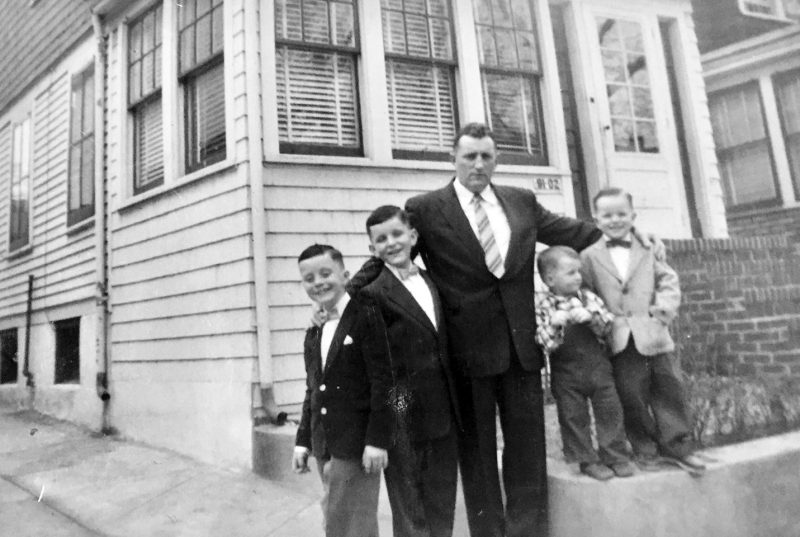
But Herlihy, the oldest, thrived and graduated with a law degree from The London School of Economics. “My eight-year residency in England during the mid-‘60s and early ‘70s shaped me as an internationalist, non-interventionist, and center-left politically,” he said.
Herlihy hadn’t planned on a career in banking, but with his dream of a career in government on hold, a friend arranged an interview with Bank of America. Herlihy was hired and joined the bank’s two-year training program in international management. He spent the next 40 years engaged in high-level banking transactions, the first 13 years in Quito, Ecuador; Santiago, Chile; Monterrey, Mexico; and finally, San Francisco.
A turn to banking
“I was a rainmaker, I brought in the business, and I enjoyed negotiating the deals and beating the competition… at first, all in fluent Spanish,” he said. The bank had provided him with a Berlitz crash course before the Herlihys left for Quito.
Life in South America was exciting. “We traveled extensively before our daughter was born,” Herlihy said. But he yearned for more English conversation. “I bought a short-wave radio and began listening to the BBC’s succinct, fact-based reporting, which I really enjoyed.”
Even though his Quito job was demanding, Herlihy hatched an idea for an extra-curricular activity while listening to the BBC’s news broadcasts. “I thought I could do the same by reporting the goings on in Ecuador,” he said.
There was plenty to write about in Ecuador, then transitioning from a military dictatorship. He contacted the now-defunct Business Latin America and was hired as a freelance reporter. He wrote at night and on weekends about the economy, politics, American companies doing business in Ecuador, and the local legislation that would affect them.
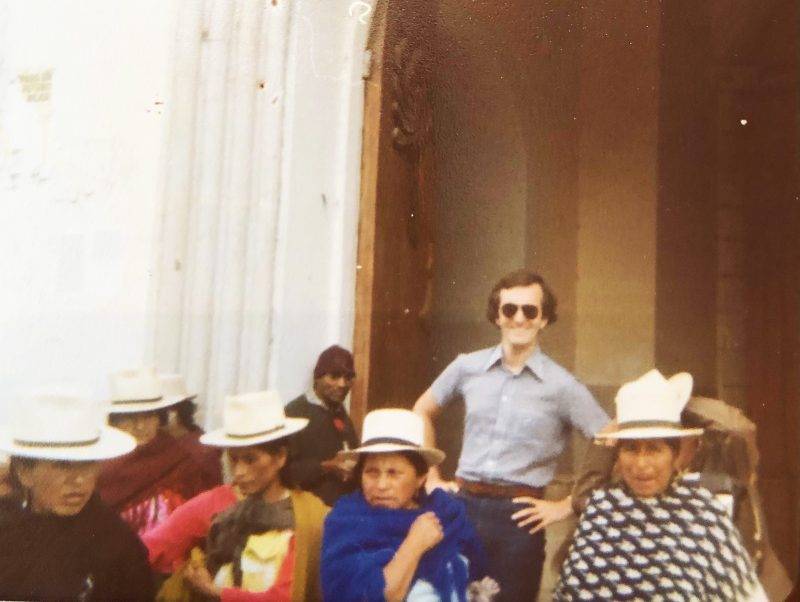
He liked the work and soon added the BBC to his client list. “I was a big fish in a small pond in Ecuador with connections, and because the BBC had no correspondent there, they took me on,” he said.
His small pond contained some internationally notorious political leaders.
Herlihy continued his job as a stringer for the BBC, along with The Economist and The Times of London, in Pinochet’s Chile, although he had to be cautious because of the dictatorship’s restrictions on the press. He later drew on his experiences in South America to write a novel he called “Deceit and Dirty Money.” Available as an ebook, it tells a story of laundered drug money and the world of private banking.
While working in Quito, Herlihy landed a scoop: He was able to interview Nicaraguan President Daniel Ortega, who was often reluctant to speak with foreign media. “I found Ortega to be intense and driven, with high energy,” he said.
But there were few opportunities for stringers when the Herlihys, now with a daughter, moved to Monterrey, Mexico, in 1982.
Politics in San Francisco
After leaving South America, Herlihy and his wife and daughter settled in San Francisco in 1984. He continued his work as a banker and became involved in Democratic Party politics. He chaired a debate between Mayor Art Agnos and his challenger, Police Chief Frank Jordan in 1991.
When Jordan ousted the incumbent, he asked Herlihy if he’d serve on the city’s library commission to aid in fundraising for the new main library. He accepted and served as president for four years. Jordan later appointed him treasurer of the committee that oversees the sister-city relationship with Cork, Ireland, a position he still holds. San Francisco has 18 sister-city relationships.
Herlihy was happy to take on the relationship with Cork since his father was Irish and from Kilkenny, a neighboring county. “I loved the concept of sister-city relationships – fostering economic, social, and cultural relationships between the two cities,” Herlihy said, “and I got a kick out of escorting Frank Jordan and (then-Supervisor) Gavin Newsom and others there.”
At Newsom’s suggestion, Herlihy chose Bangalore, India, as San Francisco’s next sister city. To make the connection, he traveled there, connected with Indian friends, and got the approval of both cities. In December 2015, Herlihy, as co-chair of the Bangalore committee, a position he still holds, saw his lobbying of Air India come to fruition with the take-off of the first non-stop flight from San Francisco to Bangalore.
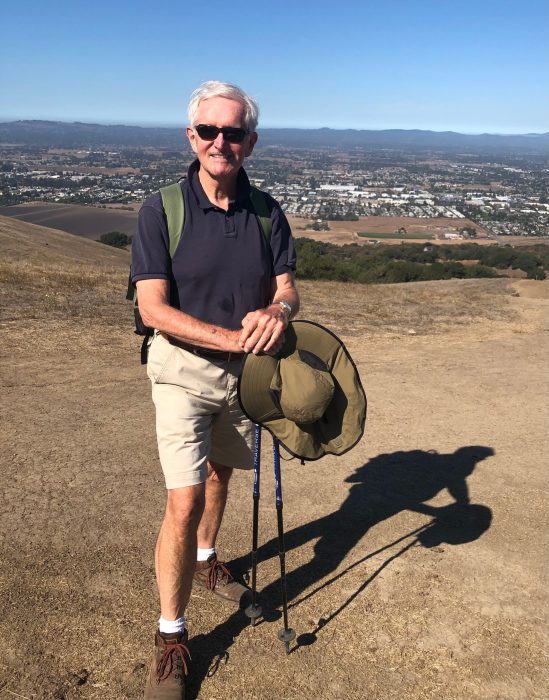
Herlihy turned 67 in 2015 and was asked to retire from his last banking job. The change in his life, he said, was distressing, even though he kept busy with his service on city commissions. Five years later, a friend suggested he harness his knowledge of business and journalism by starting a podcast. By then, Covid was top of the news and it seemed logical to focus on the pandemic. But first, he needed to learn about the technology.
“I wasn’t a tech guy, so I had to learn those skills real fast,” Herlihy said. He now has two well-equipped studios, one in his home in San Francisco’s Lakeside district, and another in his weekend home in Sonoma.
For Herlihy, a typical day starts with a five-mile walk with his wife. “I spend at least 20 hours a week on my podcast,” he said, “I think of it as a legacy I can pass on to my two grandsons, nine and 11, so they can see what their grandad was up to and what the world was like when they were young.”
He feels fortunate that he doesn’t have to make money from his podcast, “If I find a sponsor that lets me have total control, fine, but I spent too many years in the corporate world having to act a certain way, and now I want to be free of that,” he said


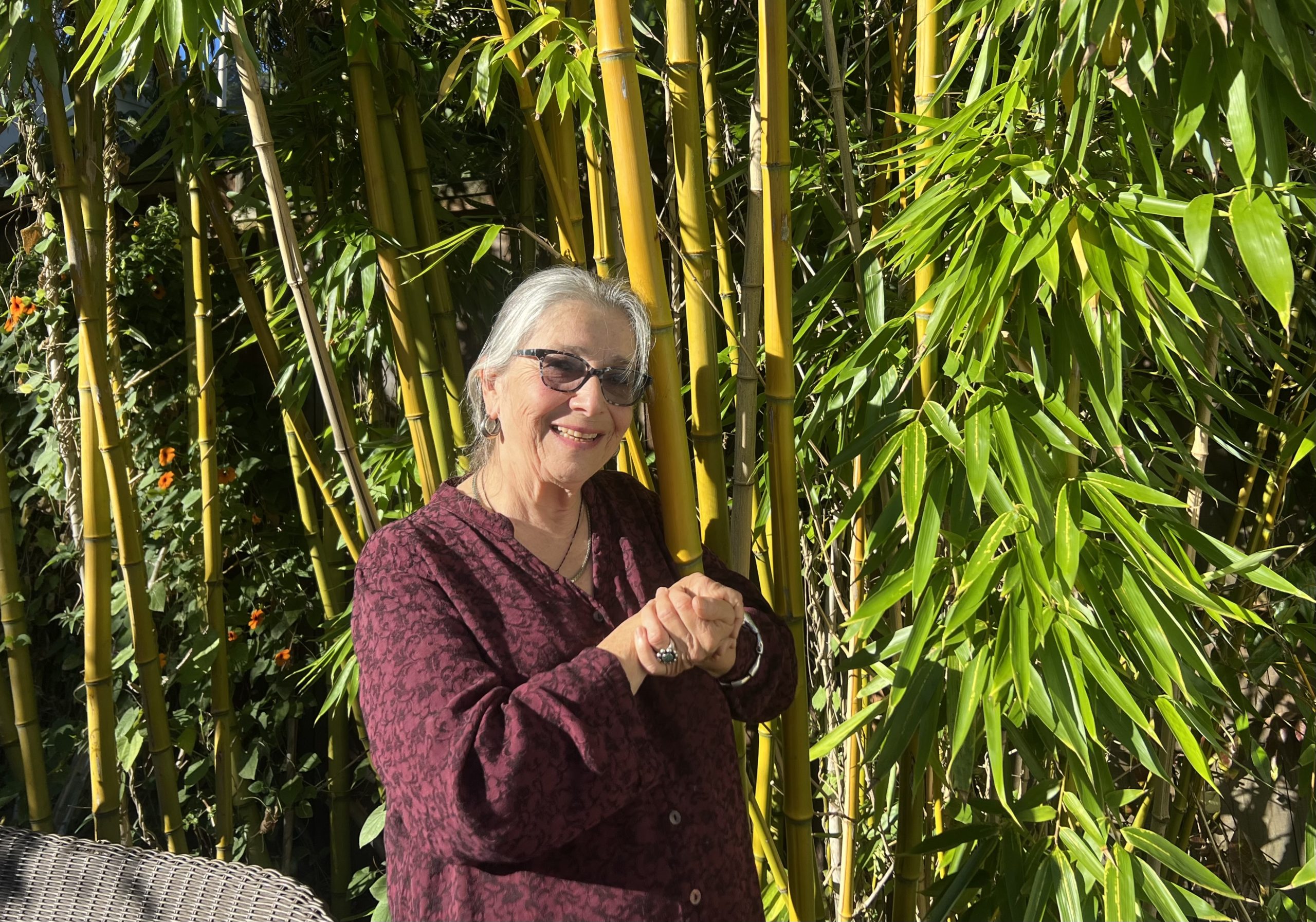
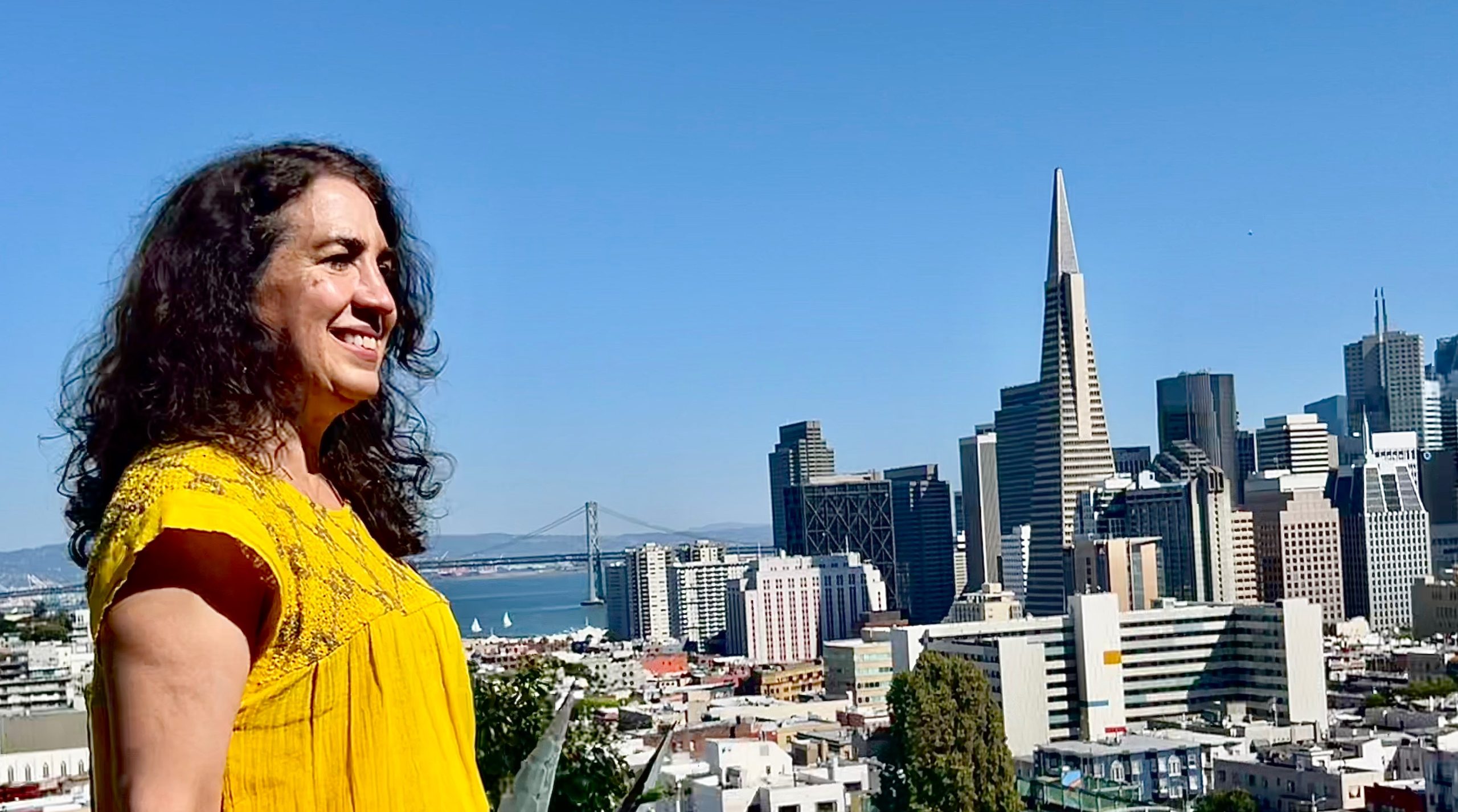
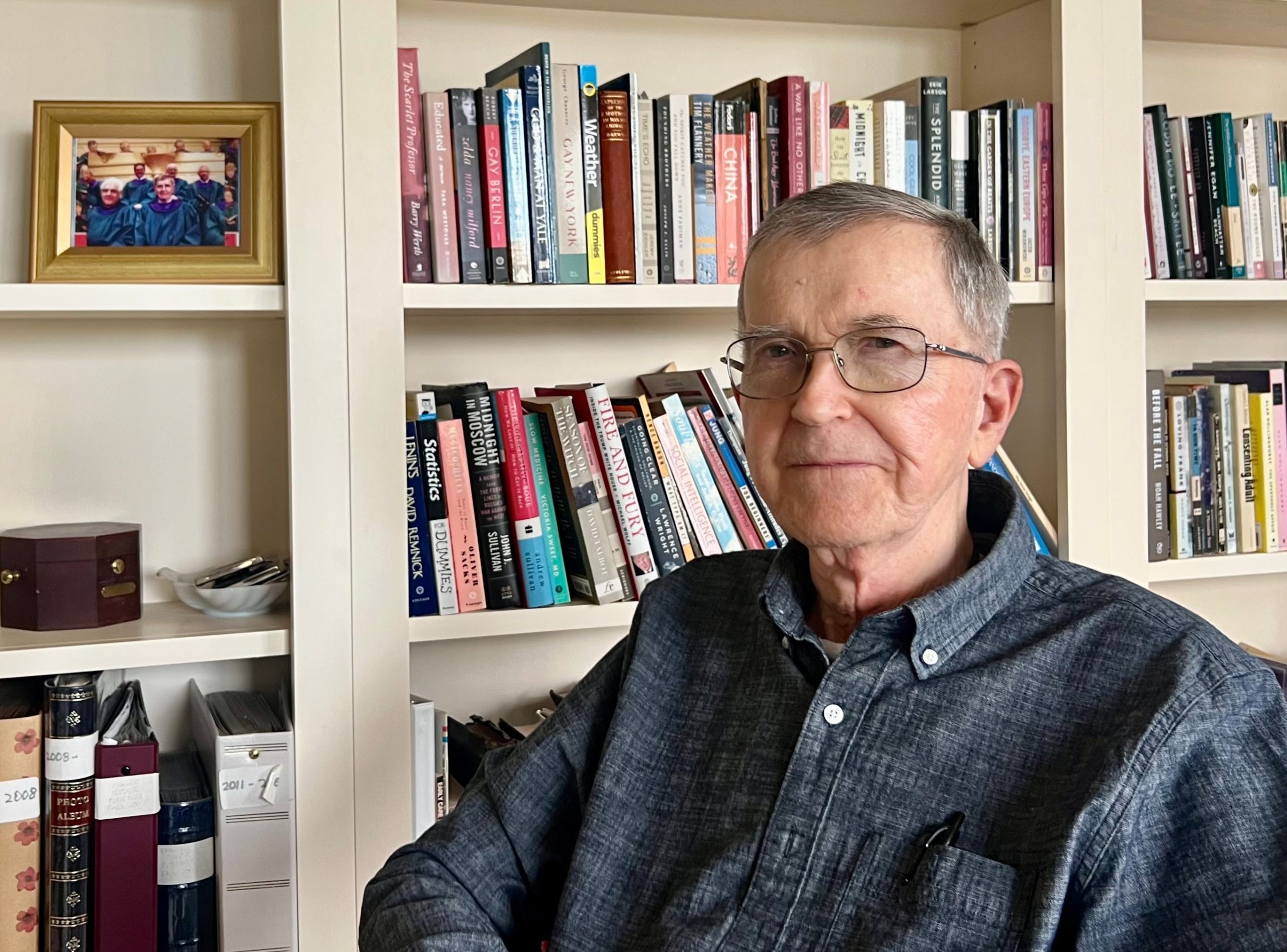

Tina N Martin
Thank you, Jan Robbins, for this article about a fascinating man! Jim Herlihy was once my neighbor on the treadmills at the Stonestown Y, and I marveled at what a great conversationalist he was because he knew so much about a variety of topics. Now I can listen to his podcast when I'm on the treadmill! You've also provided some information I didn't know.
Dorothy Bradt
Looking forward to your Podcast and this is a first for me as have never listened to podcast before.